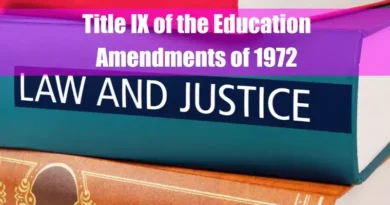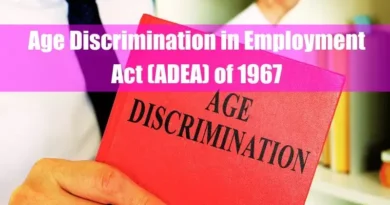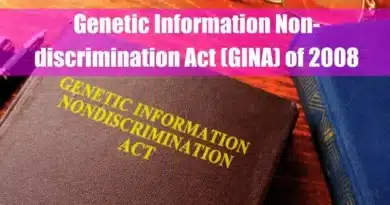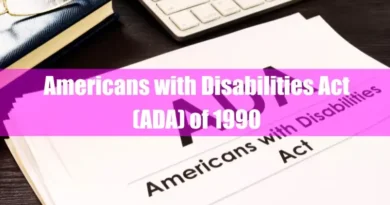What Does Pro Bono Mean in Legal Terms?
In legal terms, “pro bono” is short for the Latin phrase “pro bono publico,” meaning “for the public good.” It refers to legal services provided voluntarily and without payment to individuals or organizations unable to afford them. This practice ensures access to justice for those with limited financial means. In simple terms, Pro bono means free legal help for those who can’t afford it.
Takeaways
| Key Points |
|---|
| Pro bono, derived from the Latin phrase “pro bono publico,” meaning “for the public good,” refers to the provision of free legal services to those who cannot afford them, ensuring equitable access to justice. |
| Historically, pro bono work dates back to ancient Rome and has evolved into a professional obligation, gaining prominence in the U.S. during the 19th and 20th centuries as lawyers embraced their role in serving the public interest. |
| The practice benefits both clients and the legal community, allowing underserved individuals to receive legal representation while providing lawyers with valuable experience, enhancing law firms’ reputations, and fostering a culture of social responsibility. |
| Ethical obligations, such as the ABA Model Rule 6.1 and state bar requirements, encourage attorneys to dedicate pro bono hours, with some states mandating reporting, and corporate legal departments establishing formal initiatives to promote volunteer legal services. |
| Various pro bono services include direct legal representation, legal clinics, policy advocacy, and impact litigation, supported by law firms, non-profit organizations, law school clinics, and government initiatives that facilitate widespread participation in public service. |
Introduction
Definition of Pro Bono
The term “pro bono” is derived from the Latin phrase “pro bono publico,” which translates to “for the public good.” In the legal context, pro bono refers to the provision of legal services free of charge to individuals or organizations that are unable to afford them. This practice embodies the legal profession’s commitment to ensuring access to justice for all, regardless of financial means.
Historical Background
The concept of pro bono legal services has deep historical roots. In ancient Rome, legal advocates would occasionally represent citizens without compensation, driven by a sense of civic duty. This tradition evolved over centuries, with the legal profession increasingly recognizing its responsibility to serve the public interest. In the United States, the notion of pro bono work gained prominence in the 19th and early 20th centuries, as lawyers began to see themselves as guardians of the public good, obligated to provide free legal assistance to those in need.
Significance of Pro Bono Work

Access to Justice
Access to legal representation is a fundamental aspect of a just society. However, many individuals, especially those with limited financial resources, often find it challenging to obtain necessary legal services. Pro bono work addresses this gap by offering free legal assistance to those who cannot afford it, thereby ensuring that justice is not exclusive to the affluent. This practice helps balance the scales, allowing marginalized and underserved populations to have their voices heard and rights protected within the legal system.
Benefits to the Legal Community
Engaging in pro bono work offers numerous benefits to the legal community. For individual attorneys, it provides opportunities to gain diverse experiences, develop new skills, and handle cases they might not encounter in their regular practice. For law firms, a strong pro bono program can enhance reputation, attract talent, and foster a culture of social responsibility. Moreover, pro bono work allows legal professionals to give back to the community, reinforcing the profession’s ethical standards and commitment to public service.
Impact on Society
The societal impact of pro bono work is profound. By providing free legal services, attorneys help address systemic inequalities, challenge unjust laws, and advocate for vulnerable populations. Pro bono efforts can lead to significant social changes, such as policy reforms and increased awareness of critical issues. Furthermore, when individuals receive the legal assistance they need, it fosters trust in the legal system and promotes social cohesion. In essence, pro bono work contributes to society’s overall health and fairness.
Ethical and Professional Obligations
American Bar Association (ABA) Model Rule 6.1
The American Bar Association (ABA) underscores the importance of pro bono work through its Model Rule 6.1, which states that every lawyer has a professional responsibility to provide legal services to those unable to pay. The rule recommends that lawyers aspire to render at least 50 hours of pro bono publico legal services annually. It emphasizes that a substantial portion of these hours should be dedicated to providing legal assistance without fee or expectation of fee to persons of limited means or to charitable, religious, civic, community, governmental, and educational organizations in matters designed primarily to address the needs of persons with limited means.
State Bar Requirements
While the ABA provides a national framework, individual states have the authority to implement their own rules regarding pro bono work. Some states have adopted the ABA’s recommendations, encouraging attorneys to meet specific pro bono hour goals. For instance, Massachusetts calls on lawyers to provide a minimum of 25 hours of pro bono publico legal services annually, focusing on legal activity that benefits those unable to afford access to the system of justice. Additionally, certain states require attorneys to report their pro bono hours, even if the provision of such services is not mandatory. This reporting mechanism promotes transparency and encourages greater participation in pro bono activities.
Corporate Legal Department Policies
Corporate legal departments also play a pivotal role in promoting pro bono work. Many corporations have established formal pro bono programs, encouraging their in-house counsel to engage in volunteer legal services. These programs often focus on community service, legal clinics, and non-profit partnerships. By supporting pro bono initiatives, corporate legal departments not only fulfill their ethical obligations but also enhance their corporate social responsibility profiles, strengthen employee engagement, and positively impact the communities in which they operate.
Pro bono work is an integral aspect of the legal profession, rooted in a rich history and driven by a commitment to justice. It serves as a bridge to access for underserved populations, enriches the legal community, and fosters a more equitable society. Ethical guidelines, such as the ABA’s Model Rule 6.1, state bar requirements, and corporate policies collectively reinforce the importance of pro bono services, ensuring that the legal profession continues to serve the public good.
Types of Pro Bono Services
Pro bono legal services encompass a variety of activities aimed at providing free legal assistance to those who cannot afford it. The primary types of pro bono services include:
Direct Legal Representation
Direct legal representation involves attorneys offering individualized legal services to clients without charge. This can range from preparing wills to appealing criminal convictions. By taking on such cases, lawyers ensure that individuals facing legal challenges have access to professional guidance, regardless of their financial situation.
Legal Clinics and Workshops
Legal clinics and workshops are community-based initiatives where volunteer attorneys provide attendees with brief consultations and legal advice. These sessions often address common legal issues, such as landlord-tenant disputes, family law matters, or consumer rights. They serve as an accessible platform for individuals to gain insights into their legal concerns without the need for formal representation. For example, the American Bar Association’s Free Legal Answers program matches low-income clients with volunteer lawyers who provide brief answers online for free.
Policy Advocacy and Impact Litigation
Beyond individual representation, some pro bono efforts focus on broader systemic change. Policy advocacy involves working toward legislative or regulatory reforms that benefit underserved communities. Impact litigation, on the other hand, entails initiating or participating in legal cases that have the potential to set precedents, thereby influencing public policy and affecting large groups. These efforts aim to address the root causes of legal inequities and bring about substantial societal improvements.
Pro Bono Programs and Initiatives
Various entities within the legal community have established programs to facilitate and promote pro bono work:
Law Firm Pro Bono Programs
Many law firms have institutionalized pro bono work by creating dedicated programs. These programs encourage attorneys to volunteer their time and expertise to assist those in need. Participation in pro bono work benefits the community and enhances lawyers’ professional development by exposing them to diverse legal issues. The Pro Bono Institute’s Law Firm Pro Bono Project supports such initiatives by providing resources and guidance to law firms committed to public service.
Non-Profit Organizations
Numerous non-profit organizations coordinate pro bono legal services, acting as intermediaries between volunteer lawyers and clients requiring assistance. For instance, Legal Services of New Jersey offers statewide pro bono panels in areas like immigration, bankruptcy, and consumer protection. These organizations often provide training, mentorship, and malpractice coverage to support volunteer attorneys.
Law School Clinics
Law schools are pivotal in promoting pro bono work through clinical programs. These clinics allow law students to work on real cases under the supervision of experienced faculty, providing free legal services to underserved populations. This hands-on approach benefits clients while offering students practical experience and instilling a commitment to public service early in their careers.
Government Initiatives
Government agencies also contribute to pro bono efforts by maintaining directories of legal service providers and offering resources to both attorneys and the public. For example, the U.S. Department of Justice maintains a list of pro bono legal service providers to assist individuals in finding free legal assistance.
Challenges in Pro Bono Work
Despite the noble intentions behind pro bono work, attorneys and organizations often face several challenges:
Resource Limitations
Legal aid organizations frequently operate with constrained budgets, limiting their capacity to support pro bono initiatives. This scarcity of resources can hinder the ability to meet the legal needs of low-income individuals. As the Harvard Law School’s Pro Bono Guide notes, budget constraints on legal services make it difficult for not-for-profit agencies and legal services providers to meet their clients’ needs.
Balancing Billable and Non-Billable Hours
Attorneys often struggle to balance the demands of billable work with their desire to engage in pro bono activities. The pressure to meet billable hour requirements can deter lawyers from taking on pro bono cases, especially when these cases require significant time commitments. This challenge is particularly pronounced in corporate legal departments, where in-house lawyers typically have very full schedules, making it difficult to find time for anything beyond the company’s legal needs.
Ensuring Quality Representation
Providing high-quality legal representation in pro bono cases can be challenging, especially when attorneys venture outside their areas of expertise. Many attorneys cite the lack of subject matter knowledge or legal experience as a barrier to providing pro bono legal service. Legal aid organizations often face the burden of training and supporting volunteer lawyers to ensure competent representation.
Notable Pro Bono Cases
Pro bono work has led to significant legal victories that have shaped jurisprudence and brought justice to underserved communities. Some notable cases include:
Brown v. Board of Education (1954)
This landmark Supreme Court case, which declared racial segregation in public schools unconstitutional, was argued pro bono by a team of attorneys led by Thurgood Marshall of the NAACP Legal Defense and Educational Fund. Their efforts dismantled the “separate but equal” doctrine, transforming the American education system and advancing civil rights.
Gideon v. Wainwright (1963)
In this pivotal case, the Supreme Court unanimously ruled that states are required to provide legal counsel to defendants unable to afford their own attorneys in criminal cases. The case was brought forward pro bono by Abe Fortas, who later became a Supreme Court Justice. This decision ensured the right to a fair trial, reinforcing the Sixth Amendment.
Roe v. Wade (1973)
This historic case, which recognized women’s constitutional right to privacy extending to the choice to have an abortion, was argued pro bono by attorneys Sarah Weddington and Linda Coffee. Their advocacy led to a transformative decision impacting women’s reproductive rights across the United States.
Obergefell v. Hodges (2015)
In this landmark case, the Supreme Court ruled that same-sex marriage is a constitutional right. The case was argued pro bono by attorneys including Mary Bonauto and Douglas Hallward-Driemeier, leading to the nationwide legalization of same-sex marriage and a significant advancement in LGBTQ+ rights.
How to Get Involved in Pro Bono Work
Engaging in pro bono work is a meaningful way to contribute to society, gain valuable experience, and uphold the ethical responsibilities of the legal profession. Opportunities to participate in pro bono work vary based on one’s professional status:
For Legal Professionals
Licensed attorneys can engage in pro bono work through several avenues:
- Law Firms: Many law firms have structured pro bono programs. Attorneys should consult their firm’s pro bono coordinator or partner to identify available opportunities. Firms often focus on specific areas such as civil rights, immigration, or family law.
- Bar Associations: Local and state bar associations frequently organize pro bono initiatives and maintain directories of opportunities. For example, the Massachusetts Bar Association offers resources through MassProBono.org, allowing lawyers to find pro bono work efficiently.
- Non-Profit Organizations: Numerous non-profits seek volunteer attorneys for various causes. Platforms like the National Pro Bono Opportunities Guide help attorneys find suitable opportunities based on their interests and expertise.
For Law Students
Law students can begin their commitment to pro bono work through:
- Law School Clinics: Many law schools offer clinics where students provide legal services under supervision. These clinics cover areas like criminal defense, environmental law, and human rights.
- Pro Bono Programs: Institutions like Suffolk University Law School have programs that encourage students to engage in pro bono work, help underserved clients, and gain practical experience.
- Externships and Internships: Students can intern with non-profits, legal aid societies, or government agencies, providing free legal services to those in need.
For Non-Legal Professionals
Individuals without legal training can still contribute to pro bono efforts:
- Volunteering with Legal Organizations: Non-legal professionals can offer skills in administration, translation, or community outreach, supporting legal service providers.
- Community Education: Assisting in organizing workshops or seminars to educate the public on legal rights and processes.
- Fundraising and Advocacy: Supporting fundraising efforts or advocating for policies that enhance access to justice.
Conclusion
Pro bono work is a cornerstone of the legal profession, embodying the commitment to justice and equality. It has driven significant societal changes through notable cases, reinforcing the importance of accessible legal representation. Legal professionals, law students, and even non-legal individuals have avenues to contribute, supported by a wealth of resources and networks. Embracing pro bono work enriches practitioners’ experiences and profoundly impacts the lives of those served, fostering a more just and equitable society.









